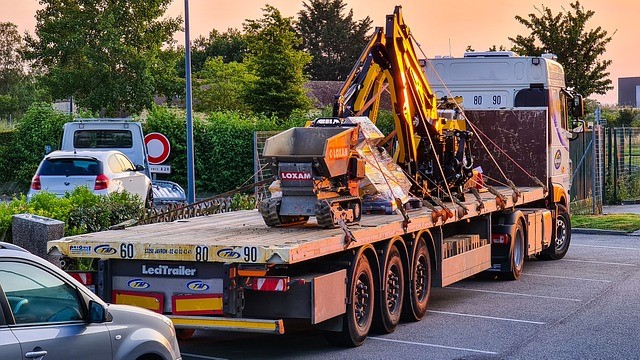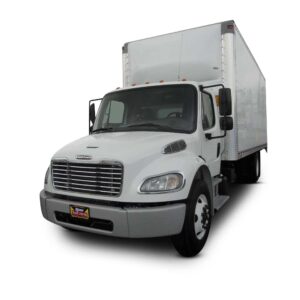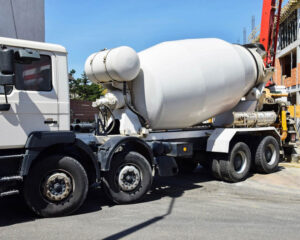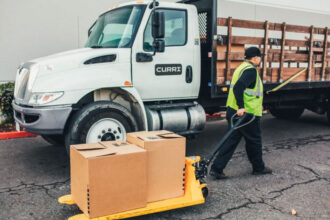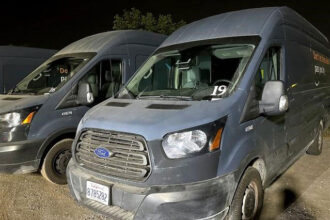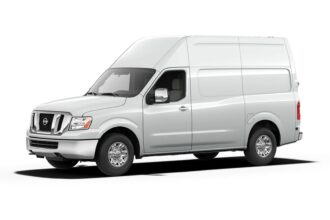Table of Contents
In the vast landscape of the logistics world, finding the right loads for your flatbed trailer is akin to discovering hidden gems. But fear not! you’re about to embark on a thrilling adventure, uncovering the secrets to finding those coveted, high-paying loads. It’s not just about transporting cargo; it’s about uncovering opportunities, building relationships, and navigating the intricate web of logistics. So, buckle up and get ready for a journey where each load is a new story, and every mile brings you closer to your next big haul. Welcome to the exhilarating world of finding loads for your flatbed trailer business!
- Understand the flatbed trailer market
- Build a strong foundation
- Utilize technology and online platforms
- Build strong relationship with brokers and shippers
- Diversify your load sources
- Provide exceptional service
- Adapt to market trend
Summary
1. Understand the flatbed trailer market
Understanding the flatbed trailer business is crucial for success in the logistics industry. Unlike enclosed trailers, flatbed trailers lack sides and a roof, making it ideal for transporting oversized, heavy, and unconventional cargo. This niche requires specialized knowledge, emphasizing load securement techniques to ensure safety during transit. You must be well-versed in regulations governing weight limits, dimensions, and proper strapping methods. Moreover, knowledge of various trailer types, such as step decks and double drops, is essential to match specific cargo requirements.
Furthermore, expertise in reading and interpreting shipping documents, like bills of lading, is pivotal for accurate deliveries. Understanding the intricacies of different industries, including construction, manufacturing, and energy sectors, is also beneficial, as it allows tailoring services to meet diverse client needs. Ultimately, grasping the flatbed trailer business involves a comprehensive understanding of safety protocols, legal regulations, cargo specifications, and effective communication with clients, brokers, and shippers. Armed with this knowledge, you can navigate the complexities of the flatbed trailer industry successfully, ensuring reliable and efficient transportation solutions for your clients.
>>>PRO TIPS: How To Buy A Flatbed Trailer For Business
2. Build a strong foundation
Building a strong foundation is paramount for success in the flatbed trailer business. It begins with investing in top-quality equipment, ensuring flatbed trailers are well-maintained and compliant with industry standards. Regular inspections and maintenance not only enhance safety but also bolster the company’s reputation. Compliance with legal regulations, including weight limits and load securement protocols, is non-negotiable, emphasizing the need for rigorous
3. Utilize technology and online platforms
In the ever-evolving landscape of the flatbed trailer business, harnessing the power of technology and online platforms is a game-changer. Load boards and freight exchanges have become indispensable tools for trucking companies. These platforms provide a vast digital marketplace where carriers can connect with shippers, efficiently matching available loads with trucks. By leveraging filters based on preferences, routes, and rates, trucking businesses can cherry-pick the most profitable and suitable loads, optimizing their operations.
Mobile apps and software solutions tailored for the transportation industry bring convenience to the fingertips of truckers. These applications offer real-time updates on available loads, allowing drivers to make informed decisions on the go. They also provide features like GPS tracking, helping drivers plan routes effectively, avoid traffic, and ensure timely deliveries. Moreover, these apps often integrate with electronic logging devices (ELDs), ensuring compliance with hours-of-service regulations effortlessly.
Telematics systems equipped with sensors and GPS technology enable real-time monitoring of fleet activities. Fleet managers can track fuel consumption, monitor driver behavior, and schedule maintenance, leading to cost savings and enhanced operational efficiency. Integrating telematics with route optimization software further improves fuel efficiency and reduces transit times.
Embracing automation and artificial intelligence streamlines administrative tasks. Automated invoicing, load matching, and document management systems reduce manual errors and save time, allowing businesses to focus on core operations. AI-driven predictive analytics provide valuable insights into market trends, enabling businesses to make data-driven decisions and stay ahead of the competition.
By embracing these technological advancements, flatbed trailer businesses not only increase their efficiency but also stay competitive in a rapidly changing industry. Embracing innovation is not just an option; it’s a necessity for those aiming to thrive in the modern logistics landscape.
4. Build strong relationship with brokers and shippers
Building strong relationships with brokers and shippers in the flatbed trailer business is like nurturing a friendship. It’s all about communication that goes beyond emails and phone calls; it’s about really understanding their needs and concerns. Picture it like having a cup of coffee with them and genuinely listening to what they have to say.
Being reliable is your golden ticket. If you say you’ll pick up a load at a certain time, make sure your wheels are rolling. Consistency builds trust faster than anything else. Also, be transparent. If there are delays or issues, let them know right away. Honesty goes a long way in any relationship.
Networking events and industry gatherings are like social gatherings for your business. It’s where you get to know people beyond the professional facade. Don’t be afraid to share your challenges and successes – it humanizes your business and makes you memorable.
Remember, it’s not just about what they can do for you; it’s also about what you can do for them. Offer exceptional service, go the extra mile, and always be ready to lend a helping hand. The more you invest in these relationships, the more you’ll find your flatbed trailer business thriving with a network of reliable partners, making your journey smoother and more enjoyable.
5. Diversify your load sources
Diversifying your load sources in the flatbed trailer business is like having a diverse investment portfolio—it spreads the risk and ensures a steady income stream. Instead of relying solely on one or two clients, exploring different industries and sectors opens up a world of opportunities.
Think of it as casting a wide net. By tapping into various sectors like construction, manufacturing, agriculture, and energy, you broaden your chances of finding profitable loads. Each industry has unique demands, and being versatile allows you to adapt to market fluctuations. For instance, while one sector might slow down during certain seasons, another could be booming.
Moreover, diversification isn’t just about the types of industries but also the kinds of loads within those sectors. Specializing in transporting specific goods, such as oversized machinery or delicate materials, can carve out a niche for your business, making you the go-to carrier for specialized cargo.
By diversifying, you not only stabilize your revenue but also build a robust reputation. A varied client base not only ensures a consistent flow of loads but also strengthens your business against economic uncertainties. It’s the key to long-term success in the ever-changing landscape of the flatbed trailer industry.
>>>GET SMARTER: How To Start a Flatbed Trailer Business
6. Provide exceptional service
Providing exceptional service in the flatbed trailer business is more than just delivering goods—it’s about creating an unforgettable experience. Imagine your service as a story; every delivery is a chapter. Timeliness is your plot twist, ensuring that deliveries arrive promptly, while professionalism forms the narrative backbone, showcasing your reliability and expertise.
Attention to detail is your character development. Secure, well-handled loads and meticulous paperwork demonstrate your commitment to perfection. Customer interactions are the emotional arcs, where friendly communication and problem-solving skills shine.
Going the extra mile, whether it’s assisting with unloading or offering post-delivery support, elevates your service from good to exceptional. It’s about anticipating needs before your clients even realize them.
Exceptional service isn’t just a transaction; it’s a relationship, fostering loyalty and trust. Like a well-crafted story, your service should leave a lasting impression, ensuring that your clients eagerly await the next chapter—creating a narrative of reliability, professionalism, and customer satisfaction.
7. Adapt to market trend
Adapting to market trends in the flatbed trailer business is akin to adjusting your sails in changing winds. Keeping a keen eye on industry shifts, whether it’s emerging cargo demands or technological advancements, is essential. Trends indicate where the demand is heading and how services need to evolve. Embracing these changes promptly ensures your business remains relevant and competitive. Whether it’s integrating new technology, diversifying your services, or targeting emerging industries, adaptability is the key to not just surviving, but thriving in the dynamic landscape of logistics. Stay agile, stay informed, and let market trends guide your strategic decisions for sustained success.
Summary
In the competitive world of flatbed trailer business, finding profitable loads is a skill that can transform your operations. By investing in the right equipment, leveraging technology, building strong relationships, diversifying your load sources, providing exceptional service, and staying informed, you can position your business for long-term success. Stay proactive, adaptable, and customer-focused to thrive in this dynamic industry.


